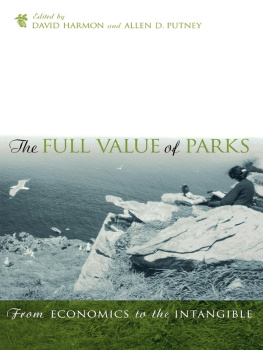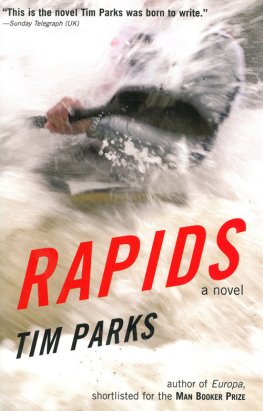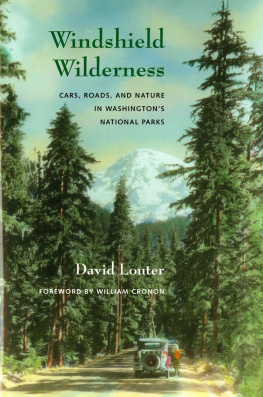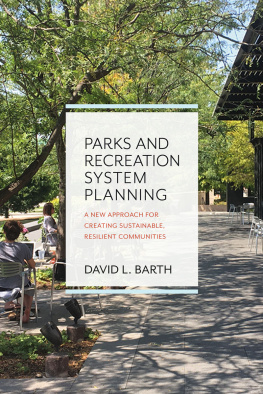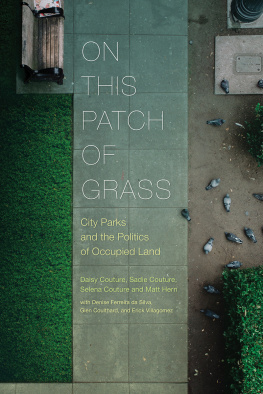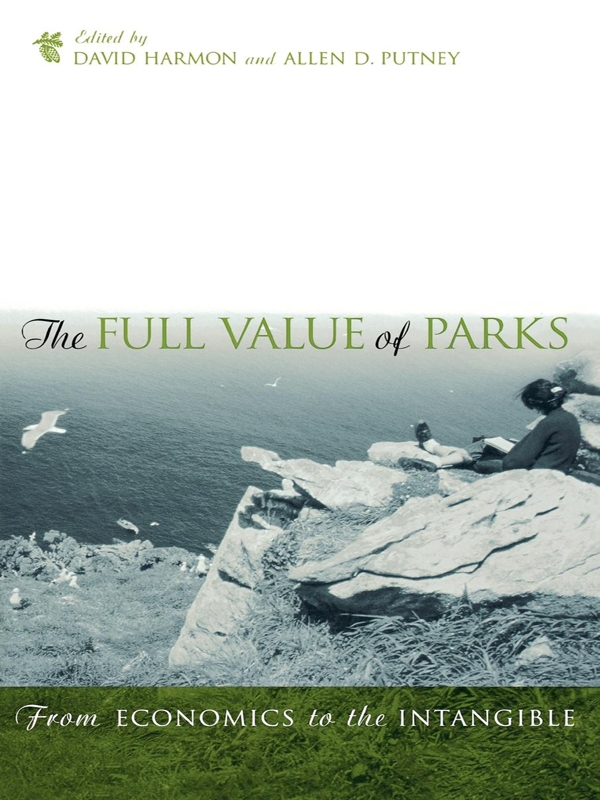About the Contributors
Steven A. Acker is a supervisory botanist and plant ecologist at Olympic National Park, Port Angeles, Washington. He was previously inventory and monitoring coordinator for the Pacific West Region of the U.S. National Park Service and a research assistant professor in the Department of Forest Science, Oregon State University. His main research interest is vegetation dynamics, especially riparian and old-growth forests of the Pacific Northwest.
German I. Andrade is a biodiversity and protected area consultant and a member of the regional steering committee of IUCNs World Commission on Protected Areas. He is the chief technical advisor of the Machu Picchu Program, a debt-for-nature swap between Finland and Peru, which benefits the Machu Picchu Historic Sanctuary, a unit of the Peruvian system of protected areas.
Angu Kenneth Angu is a senior staff member in IUCNThe World Conservation Unions Regional Office for Central Africa, based in the Republic of Cameroon. Presently finalizing his Ph.D. dissertation in developmental anthropology, he has written on a wide range of topics related to conservation and development in Central Africa, with a strong emphasis on natural resource management and human development.
Jonathan I. Barnes is the coordinator of the Environmental Economics Program in the Directorate of Environmental Affairs, Ministry of Environment and Tourism, Namibia. He is trained in both ecology and economics and has worked in Africa and Latin America. His research experience and writings have mainly been focused on the economics of wildlife, rangeland, fisheries, forestry, and land use.
Bradley W. Barr is a senior policy adviser and the East Coast, Gulf of Mexico, and Great Lakes regional coordinator in the Office of the Director of the U.S. National Oceanic and Atmospheric Administrations National Marine Sanctuary System, Woods Hole, Massachusetts. His research interests include marine wilderness and a wide variety of issues related to the identification, designation, and management of marine protected areas.
Vladimir Boreyko is the director of the Kiev Ecological-Cultural Center, Kiev, Ukraine.
Eduardo Crespo is currently the chief of the Network Development Department of Spains National Park Organization. His career with this agency has also included responsibilities in protected area public use planning and management, as well as international relations. His professional and personal interests center on different aspects of the relationship between people and remote wilderness. His most recent book, published in Spain in 2002, is a partly philosophical, partly technical handbook titled Espacios Naturales Protegidos y Desarrollo Duradero: Teora y Gestin (Protected Areas and Durable Development: Theory and Management).
Natalia Danilina directs the EcoCenter Zapovedniks, a Moscow-based environmental education organization whose overall aim is to improve public awareness of protected areas as a natural heritage in which to take pride and to help recognize the key role of zapovedniks and national parks in the protection of the Russias biodiversity. The center was initially established to implement the World Wide Fund for Natures Education Project in Moscow and now has thirty branches in protected natural areas around Russia that conduct environmental education outreach activities with local residents. Danilina is also the vice chair of the North Eurasian regional steering committee of IUCNs World Commission on Protected Areas.
Gary E. Davis is a visiting chief scientist of the U.S. National Park Service for Ocean Programs. He is a marine ecologist and certified fisheries scientist, with B.S. and M.S. degrees in biology from San Diego State College. In 1964, he began his career with the National Park Service as a park ranger. From 1968 to 1980, he conducted research in Everglades, Biscayne, DryTor-tugas, and Virgin Islands national parks, including stints as an aquanaut on TEKTITE I and a founding director of the South Florida Research Center. He returned to California in 1980 to develop an ecological monitoring program at Channel Islands National Park that became a model for the National Park Service. He lectures widely and has authored more than 130 scientific articles on marine ecology, fisheries, and monitoring, and edited, with William L. Halvorson, the book Science and Ecosystem Management in the National Parks (University of Arizona Press, 1996).
Rod Ehler is an economist with the U.S. National Oceanic and Atmospheric Administrations National Marine Sanctuary Program.
Anthony J. English is based in the Research Unit of the Cultural Heritage Division, New South Wales National Parks & Wildlife Service, Australia. He has qualifications in archaeology and environmental law and for the last few years has been focusing on researching the Aboriginal cultural values of biodiversity and the opportunities available to shape land use planning so that these values are recognized in environmental impact assessment and other contexts. His most recent publication is a book titled The Sea and the Rock Gives Us a Feed: Mapping and Managing Gumbaingirr Wild Resource Use Places (NSW National Parks & Wildlife Service, 2002).
Alan Ewert received his Ph.D. from the University of Oregon in 1982 and is currently a professor and holder of the Patricia and Joel Meier Endowed Chairship in Outdoor Leadership at Indiana University. Prior to this, he was a professor and the program chair of Resource Recreation and Tourism at the University of Northern British Columbia and branch chief of Recreation, Wilderness, and Urban Forestry Research for the U.S. Department of Agriculture-Forest Service, based in Washington, D.C. He has published several books on the topics of adventure education and natural resource management. He was elected to the Academy of Leisure Scientists in 1993 and is an associate dean in the School of Health, Physical Education, and Recreation at Indiana University.
Joel Geffen has nearly two decades of experience working in forestry and anthropology. Currently, he is a doctoral candidate in the Department of Religious Studies at the University of California, Santa Barbara. His dissertation research focuses on relationships between religion and science in America as these are expressed by native and nonnative fish and wildlife biologists working to protect species and habitats. He is simultaneously working toward the completion of a doctorate in the Geography Department at the University of California, Los Angeles. His dissertation examines the dynamic role of place in the formation of contemporary identities held by members of the Yakama Nation, a Native American group in Washington state.
David M. Graber is a senior science advisor for the U.S. National Park Service, based at Sequoia & Kings Canyon National Parks in California. In the past, he has served as a research biologist both for the U.S. National Park Service and the U.S. Geological Survey. His research and management interests have centered on the role of science in park management and on conservation biologyparticularly the role of parks in larger landscapes, the meaning of management in wild lands, and ecological restoration.
Adrienne Hall is a park planner at Denali National Park and Preserve in Alaska. She is an avid adventure racer and author. Her most recent book, A Journey North (Appalachian Mountain Club Books, 2000), chronicles her six-month hike along the Appalachian Trail and documents environmental and recreational controversies in the Appalachian mountains. She has a B.S. in biology and an M.S. in environmental studies.

